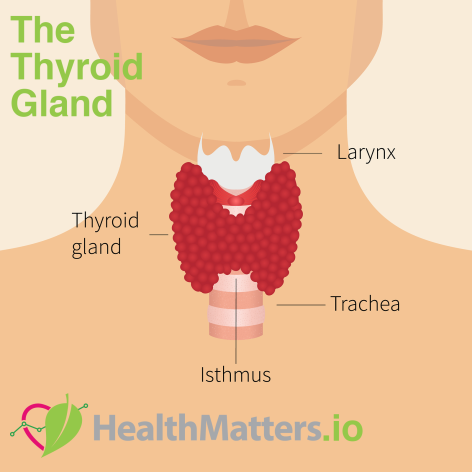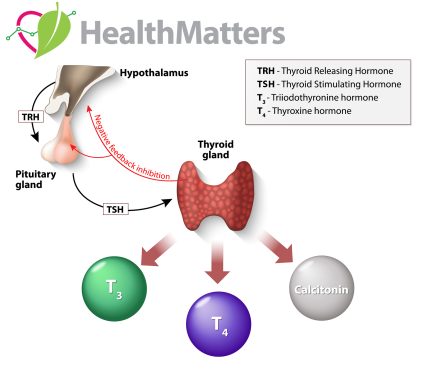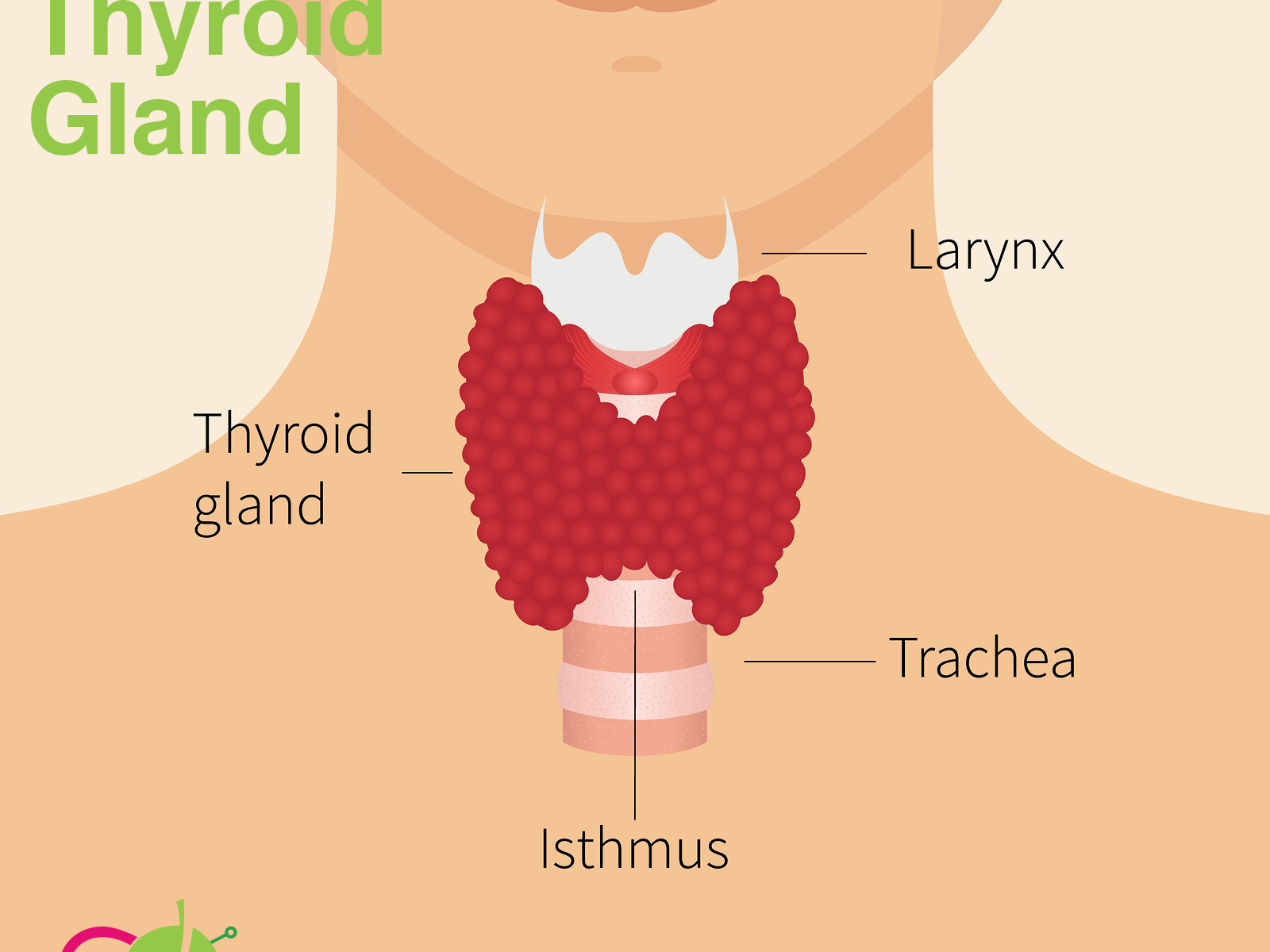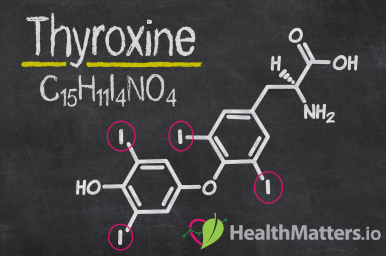The thyroid gland is a butterfly-shaped organ located in the base of your neck. It releases hormones that regulate the speed with which your body cells work.

The thyroid gland uses iodine from the foods you eat to make two main hormones. One is called triiodothyronine, which contains three atoms of iodine and is often referred to as T3. The other one is called thyroxine. Thyroxine has four iodine atoms, hence we call it T4.
The thyroid’s hormones regulate vital body functions, including:
- Breathing
- Heart rate
- Central and peripheral nervous systems
- Body weight
- Muscle strength
- Menstrual cycles›
- Body temperature
- Cholesterol levels
- …and much more.
The amount of T3 and T4 produced by the thyroid gland is controlled by another hormone, which is made in the pituitary gland located at the base of the brain. This hormone is called Thyroid Stimulating Hormone (TSH). TSH is controlled, stimulated and released by the Thyrotropin-releasing hormone (TRG) in the Hypothalamus.

The connection between the Thyroid Gland and the Pituitary Gland:
The amount of TSH that the pituitary sends into the blood stream depends on the amount of T4 that the pituitary gland sees. If the pituitary gland sees very little T4, then it produces more TSH to tell the thyroid gland to produce more T4.
Once the T4 in the blood stream goes above a certain level, the pituitary’s production of TSH is shut off.
The best way to test thyroid function is to measure the TSH level in the blood:
High level of TSH
A high TSH level indicates that the thyroid gland is failing because of a problem that is directly affecting the thyroid (primary hypothyroidism).
Low level of TSH
A low TSH level usually indicates that the person has an overactive thyroid that is producing too much thyroid hormone (hyperthyroidism). Occasionally, a low TSH may result from an abnormality in the pituitary gland, which prevents it from making enough TSH to stimulate the thyroid (secondary hypothyroidism).
Normal level of TSH
In most healthy individuals, a normal TSH value means that the thyroid is functioning normally.
The finding of an elevated TSH and low T4 indicates primary hypothyroidism due to disease in the thyroid gland.
A low TSH and low T4 indicates hypothyroidism due to a problem involving the pituitary gland. A low TSH with an elevated T4 is found in individuals who have hyperthyroidism.



